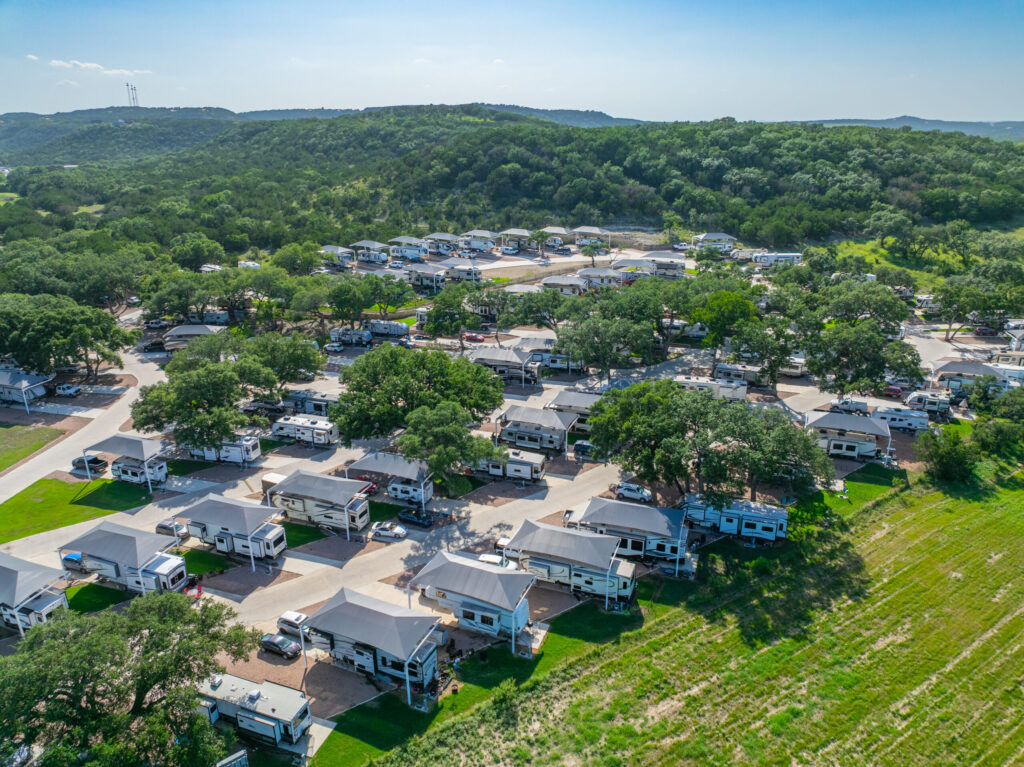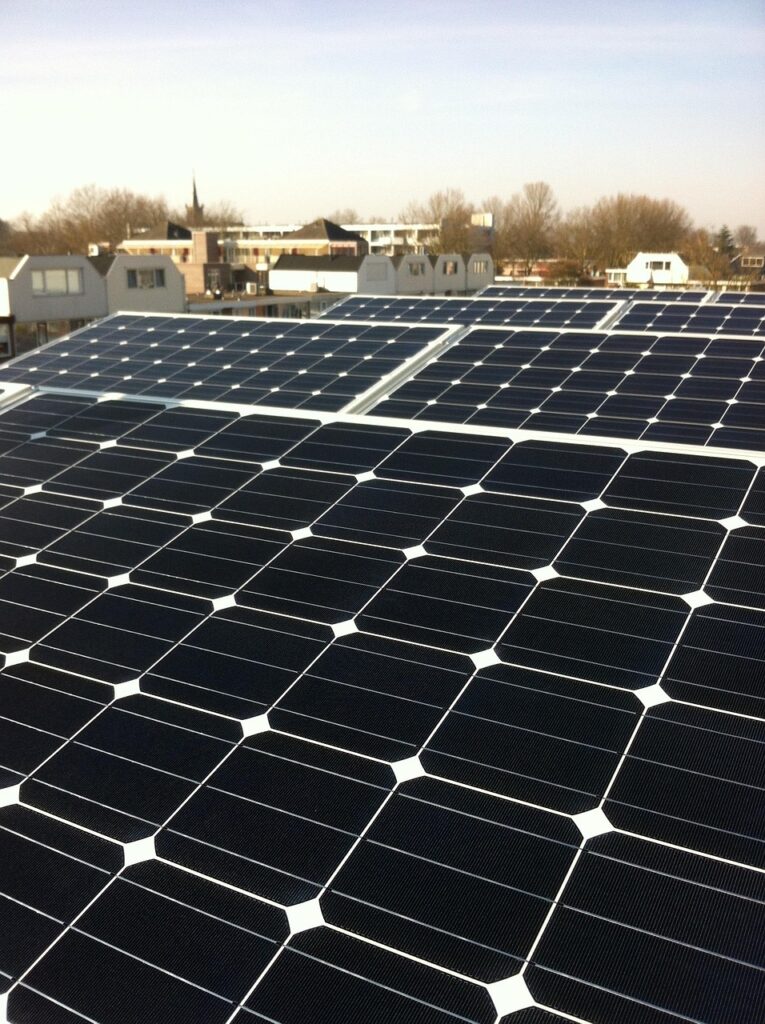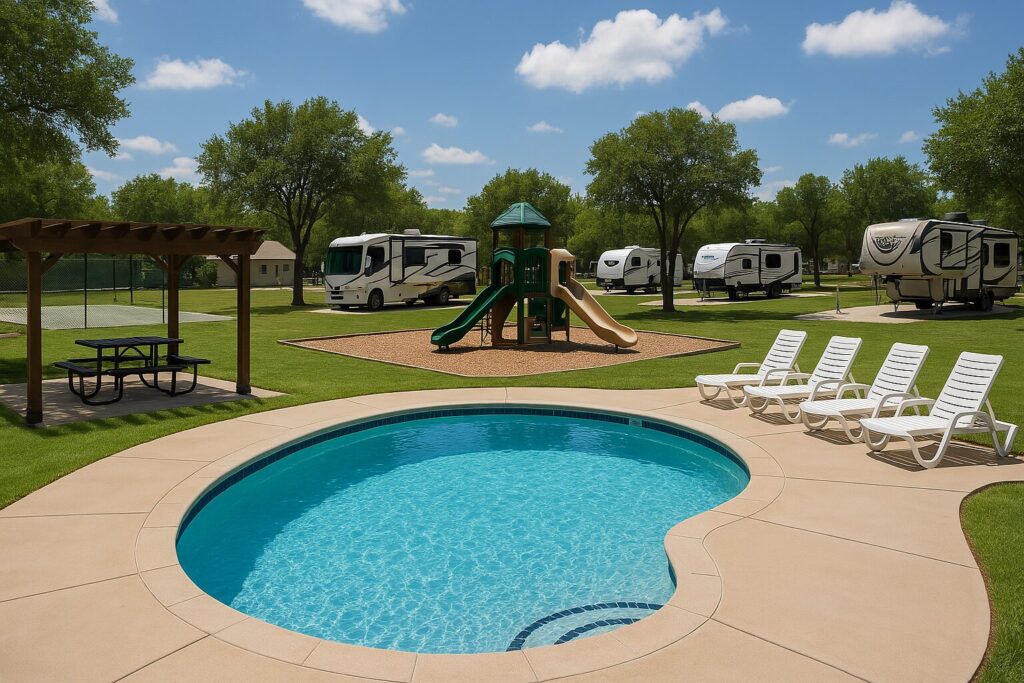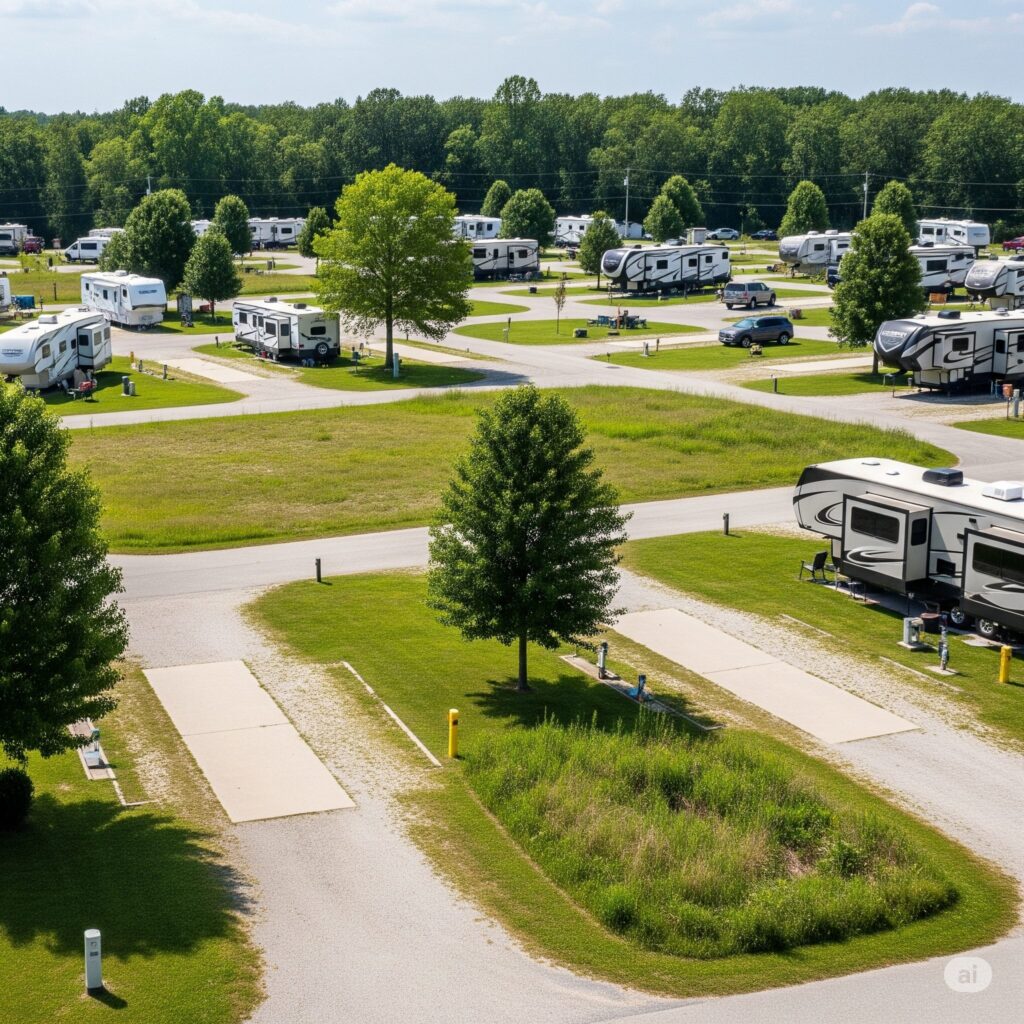

In working with hundreds of park owners across the country, one thing has become clear: the most successful operators are intentional. They know their market, understand their guest, and have a clear vision for what they want from their property. Whether you’re holding for cash flow, planning to sell, or building a portfolio—there are proven ways to increase revenue. Here’s a comprehensive breakdown of strategies you can use, customized for the unique dynamics of RV parks, mobile home communities, and campgrounds.
1. Utility Pass-Throughs, Solar, and Smart Infrastructure
Applies to: All Parks (especially MH and long-term RV)
Utilities are one of the largest ongoing costs for park owners. One of the most effective ways to reduce these costs is through utility pass-throughs—charging tenants based on their actual usage. This is commonly done by installing submeters for electricity, water, and gas, so that residents pay their fair share and waste is minimized.
If you’re in Texas, don’t overlook the predominant use electricity sales tax exemption. If more than 50% of electricity (measured through a single meter) is consumed by guests staying longer than 30 days, you may be exempt from paying sales tax on your electric bill. This exemption can apply moving forward—and even retroactively for refunds.

Need help upgrading? Consider Peak Energy Tech, an electric device vendor featured at the TACO Conference, who offers high-quality, code-compliant solutions for reducing electric costs at parks – guaranteed.
Also, solar installations are gaining traction in this industry. Yes, the upfront cost is significant—but so is the long-term impact on your park’s NOI and valuation. Federal solar tax credits have historically covered up to 30% of installation costs, and these programs are often extended or updated—so consult a tax or energy advisor before you proceed. When it comes time to sell your park, consistent energy savings will be highly attractive to investors.
2. Value-Add Amenities Based on Guest Type & Location
Applies to: All Parks, tailored by audience
Not all upgrades are created equal. The best operators take time to understand their guest profile and tailor their improvements accordingly.

Revenue-Boosting Amenity Ideas:
- Shade structures / site covers: Especially important for parks with limited tree coverage or in hot climates.
- Upgraded laundry & bath houses: Clean, private, and secure facilities improve guest experience and justify higher rents.
- Reliable Wi-Fi: In today’s world, it’s not optional. This is especially true for remote workers and longer-term guests.
- On-site storage units: These appeal to long-term residents, working professionals, and families moving between homes.
A park near a military base may serve transient workers or families in transition. A park near a national park may be better served by short-term upgrades like Wi-Fi or bath houses. The key: know your guests and know your surroundings—then invest accordingly.
3. Conversion of Underutilized Land
Applies to: All Parks (where land is available)
If your park has raw or unused land—or if it’s poorly laid out—you may be sitting on untapped revenue.
Consider converting space into:
- Additional RV sites or mobile home pads
- Cabins, park models, or glamping units
- Boat/RV storage or self-storage units
Adding even a handful of new spaces can dramatically improve cash flow and park valuation, especially if you’re targeting an exit in the next 12–24 months.

4. Bookkeeping & Record-Keeping: You Can’t Improve What You Don’t Track
Applies to: All Parks
Park operations are a business—and like any business, they live and die by the numbers.
Too many park owners rely on memory or handwritten notebooks. But without proper records, it’s impossible to optimize your operations—or prove value to a buyer when you decide to sell.
Use a property management software like Campspot to keep your books clean and consistent.

Essential records to keep:
- Rent rolls (daily, weekly, monthly)
- Utility bills & reimbursements
- Booking/reservation data
- CapEx improvements
- Maintenance logs
- Employee payroll & vendor invoices
- Tax returns & insurance docs
- Guest reviews & complaint records
- Historical P&Ls
- Marketing expenses
Solid bookkeeping improves operations and massively reduces legal and financial risk during a sale or refinance.
5. Marketing: If Renters Can’t Find You, They Can’t Book
Applies to: Primarily RV Parks & Campgrounds
You could have the nicest RV park in the county—but if no one knows about it, it won’t matter.
Physical improvements are invisible unless supported by a solid marketing plan. In today’s digital-first world, younger renters are finding parks online, often through social media or targeted ads.
Where to start:
- Run Google Ads and Facebook Ads—start small, test, and track results.
- Use tools like CampgroundLaunch.com to set up and optimize your ranking in Google.
- Post regularly on social media—photos, videos, testimonials, local attractions.
- Show off your amenities: pools, dog parks, scenic sites, trails, etc.
- Don’t forget your best prospects may be renters at nearby parks. Many of them already looked at your park online. With the right visibility, they might make the switch

📊 Statistic: According to KOA’s annual report, 73% of Millennials and Gen Z RV renters discover parks online, and 42% of bookings now happen via mobile devices.
6. Tax Efficiency: Don’t Leave Money on the Table
Applies to: All Parks
Taxes are one of the biggest line items on your P&L—yet most owners spend little time proactively minimizing them.

Here are two powerful tools to consider:
- 1031 Exchanges: If you sell a property, you may owe a large capital gains tax. But by reinvesting the proceeds into a like-kind property, you can defer—and in some cases, eliminate—capital gains taxes entirely.
- Bonus Depreciation & Cost Segregation Studies: These allow you to accelerate depreciation on park improvements like electrical upgrades, paving, laundry machines, or site covers—offsetting your taxable income for the year.
🧠 It’s worth speaking with a tax professional who specializes in real estate.
7. Dynamic Pricing Based on Demand
Applies to: RV Parks & Campgrounds
Hotels and airlines use dynamic pricing to adjust rates based on demand. RV parks can too—with the right software.
You can set higher nightly rates during holidays, local events, or weekends—and offer discounts during slow periods. Tools like Campspot have built-in pricing engines to help automate this. While not a must-have for every park, it’s worth exploring if you’re operating in a competitive or seasonal market.

Final Thought: Know Your Exit Strategy—And Operate Accordingly
Applies to: All Parks

After speaking with hundreds of park owners, one thing stands out: the best operators know where they’re going.
- If you’re planning to hold long-term, gradual improvements aligned with cash flow may be the smart move.
- If you’re planning to sell soon, larger investments that boost revenue quickly may pay off with a higher sale price and stronger buyer demand.
- If you’re building a portfolio, investing in systems, staffing, and technology will free up your time to grow faster.
However you plan to operate—operate with the end in mind.

Previous Post
POST TACO 2025 RECAP
Next Post
How RV & MH Park Owners Can Boost NOI with Peak Energy Saver Technology
